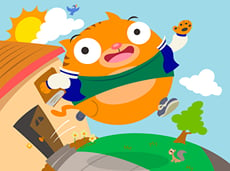Educational 2nd Grade Collecting and Organizing Data Games
About Educational 2nd Grade Collecting And Organizing Data Games
On Education.com, this page provides 2nd grade collecting and organizing data games that help children develop data recording and analysis skills through engaging activities. These games introduce young learners to categorizing information, creating charts, and interpreting patterns, making mathematics both fun and meaningful. By practicing these foundational skills, students strengthen their ability to organize and draw conclusions from data. The activities blend hands-on play with educational objectives to support early math learning.
Browse 2nd grade collecting and organizing data worksheets, printables, and classroom activities on Education.com. These resources include templates for gathering and sorting information, creating bar graphs, and analyzing charts. Educators and parents can use these materials to reinforce classroom lessons, promote critical thinking, and encourage data literacy in a structured,interactive way. Each resource is designed to make learning data collection accessible and enjoyable for young children.
Create practical lessons or at-home practice sessions with these fun, educational 2nd grade collecting and organizing data games on Education.com. Students can try pre-made activities or adapt worksheets to strengthen their ability to sort, graph, and interpret data. Educators and parents save time by accessing ready-to-use materials that inspire hands-on learning and curiosity in math. These resources provide structure and support for children to explore data concepts confidently.
Browse 2nd grade collecting and organizing data worksheets, printables, and classroom activities on Education.com. These resources include templates for gathering and sorting information, creating bar graphs, and analyzing charts. Educators and parents can use these materials to reinforce classroom lessons, promote critical thinking, and encourage data literacy in a structured,interactive way. Each resource is designed to make learning data collection accessible and enjoyable for young children.
Create practical lessons or at-home practice sessions with these fun, educational 2nd grade collecting and organizing data games on Education.com. Students can try pre-made activities or adapt worksheets to strengthen their ability to sort, graph, and interpret data. Educators and parents save time by accessing ready-to-use materials that inspire hands-on learning and curiosity in math. These resources provide structure and support for children to explore data concepts confidently.

